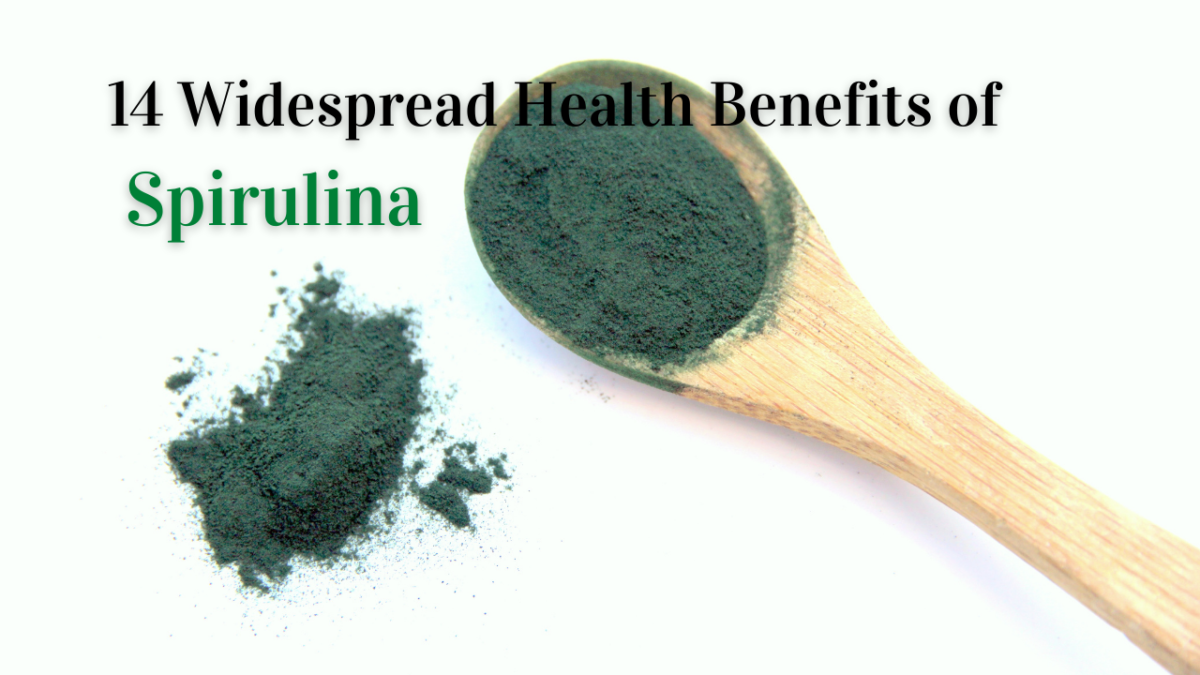
Spirulina is one of the most prevalent powders all over the world and it has also demand in large quantities. Spirulina is a kind of blue-green algae that can be taken as a dietary supplement by individuals. It is filled with different vitamins and fiber that your body and brain will benefit from. Spirulina is one of the most prevalent supplements worldwide. Spirulina has a heavy amount of protein and vitamins, making it a perfect nutritional additive for people on vegetarian or vegan diets. Research indicates that spirulina has antioxidant and inflammation-fighting properties, as well as the potential to help control the immune system. It is also frequently used in traditional medicine.
This article will give more useful data about its advantages:
1.In Many Nutrients, Spirulina is exceptionally strong
In both freshwater and marine environments, Spirulina is an organism that evolves.
It is a sort of cyanobacteria that is also pointed to as blue-green algae, a family of single-celled microbes.
Much like plants, through a process of photosynthesis, cyanobacteria can generate energy from the sun.
Spirulina was eaten by the ancient Aztecs, but became common when NASA suggested that astronauts could cultivate it in space for use .
A basic everyday dose of spirulina is 1-3 grams, but amounts of up to 10 grams per day have been successfully used.
A tablespoon (7 grams) of spirulina contains a small amount of fat, about 1 gram, in an estimated 1.5-1.0 ratio, with both omega-6 and omega-3 fatty acids.
The protein content in spirulina is regarded to be outstanding, equivalent to eggs. It provides you with all the necessary nutrients(amino acids) your body needs. The fact that spirulina includes vitamin B12 is sometimes believed, but this is incorrect. It contains pseudovitamin B12, which in individuals has not proven to be extremely effective.
2.Efficient effects of antioxidants and anti-inflammation
Your DNA and cells can be harmed by oxidative damage.
Chronic inflammation, which leads to diseases such as cancer, may lead to this damage.
Spirulina is a wonderful source of antioxidants that are able to defend toward oxidative harm.
Its major active ingredient is termed phycocyanin. This antioxidant compound gives its special blue-green color to spirulina, too.
With remarkable antioxidant and anti-inflammatory properties, phycocyanin can combat free radicals and hinder the formation of inflammatory signaling molecules.
3. Capability of lowering “bad” levels of LDL and triglycerides
Heart disease remains the major cause of death worldwide.
An elevated risk of cardiovascular disease is associated with several health conditions.
Spirulina, as it points out, has a favorable influence on all of these variables. For instance, when enhancing “good” HDL cholesterol, it can lower total cholesterol, “bad” LDL cholesterol and triglycerides.
In a research, 2 grams of spirulina per day substantially increased these markers in 25 patients with type 2 diabetes.
Some other studies found that 1 gram of spirulina each day reduced triglycerides by 16.3 percent and “bad” LDL by 10.1 percent in individuals with high cholesterol.
Several other trials, but with higher doses of 4.5-8 grams per day, have found beneficial results.
4.Provides protection to “Bad” LDL Cholesterol From Oxidation
In your body, fatty components are prone to oxidative stress.
This is referred to as lipid peroxidation, a major trigger of many severe illnesses.
For instance, the oxidation of “bad” LDL cholesterol is one of the main stages in the development of heart attacks.
Intriguingly, the antioxidants in spirulina tend to be incredibly useful both in people and animals in minimizing lipid peroxidation.
In a sample of 37 individuals with type 2 diabetes, 8 grams per day of spirulina greatly reduced oxidative damage markers. It has also raised blood levels of antioxidant enzymes.
5.Existence of Anti-Cancer Properties
Some research indicates that there are anti-cancer effects of spirulina.
Animal evidence found that it can decrease the risk of cancer and the size of the tumor.
The impact of Spirulina on oral cancer, or mouth cancer, were especially well examined.
One research investigated 87 patients with precancerous lesions in the mouth, named oral submucous fibrosis (OSMF), from India.
45 percent witnessed their lesions vanish for those who took 1 gram of spirulina each day for one year, opposed to just 7 percent in the treatment group.
In the following year, nearly half of these individuals redeveloped lesions after they started taking spirulina.
1 gram of spirulina a day contributed to a greater change in OSMF symptoms than the medication Pentoxyfilline in another study of 30 patients with OSMF lesions.
6.Might Lower Blood Pressure
A major driver of many severe illnesses, such as heart attacks, strokes and chronic kidney disease, is high blood pressure.Although 1 gram of spirulina is inefficient, it has been shown that a dosage of 4.5 grams each day decreases blood pressure in people who have average levels.
This decrease is anticipated to be caused by increased nitric oxide production, a signaling molecule that helps relax and dilate your blood vessels.
7.Enhances Allergic Rhinitis Signs
Inflammation of your respiratory passageways is marked by allergic rhinitis.
Ecological allergens, such as pollen, animal skin or even wheat powder, cause it.
Spirulina is a common alternative medication for allergic rhinitis symptoms and proof that it can be successful is available.
A 2013 report shows that spirulina can alleviate nasal inflammation in the body and decrease histamine. It can relieve the severity of allergic rhinitis compared with placebo, such as:
- Runny nose
- Sneezing
- Congestion of the nose
- Itching
In one study, 2 grams a day significantly decreased symptoms such as nasal discharge, sneezing, nasal congestion and itching in 127 individuals with allergic rhinitis.
8.Possible to be protective against anemia
There are several forms of anemia that are distinct.
A drop in hemoglobin or red blood cells in your blood is described as the most prevalent.
In older individuals, anemia is relatively standard, resulting in prolonged feelings of tiredness.
Spirulina treatments boosted the hemoglobin level of red blood cells and enhanced immune system in a study of 40 older people with a history of anemia.
9.Can enhance speed and endurance of muscles
Oxidative damage caused by exercise is a significant contributor to muscle fatigue.
Specific plant foods have antioxidant properties which help mitigate this harm to athletes and physically active citizens.
As certain research have referred to increased muscle strength and endurance, Spirulina seems advantageous.
Spirulina increased stamina in two trials, substantially improving the time it took for individuals to become exhausted.
10.Can Help Regulate Blood Sugar
Research in rodents relate spirulina to substantially lower levels of blood sugar.
It has outperformed common diabetes medications, particularly Metformin, in some instances.
Some proof is also available that spirulina can be beneficial in humans.
2 grams of spirulina a day contributed to a remarkable drop in blood sugar levels in a two-month study of 25 people with type 2 diabetes.
HbA1c, a long-term blood sugar level marker, declined from 9 percent to 8 percent, which is important. Studies report that a 1 percent decrease in this marker will minimize by 21 percent the risk of death due to diabetes.
11.Mental Wellbeing Assistance
A paper from 2018 illustrates the potential role spirulina may have in the treatment of mood disorders.
The hypothesis is that spirulina is a tryptophan origin. Tryptophan is an amino acid which promotes the creation of serotonin. In mental wellbeing, serotonin plays a major role.
Individuals with some mental health issues may have decreased serotonin levels, such as anxiety and depression. In order to promote mental health, taking tryptophan antioxidants to maintain healthy levels of serotonin can play a great role.
12.Metabolism boost
The consumption of spirulina can help improve the metabolism of an individual.
A higher metabolic rate can make a person feel as if more energy is available.
It will also raise the quantity of calories people eat per day, which will help with weight loss.
Individuals who received 6 g of spirulina each day observed positive metabolic effects in a small-scale 2014 study, including weight loss and improved quality of life linked to health.
There was non-alcoholic fatty liver disease in the individuals in this study, and so more investigation is necessary to see whether spirulina will improve metabolism without that kind of disorder in others.
13.Deals with diabetes
As a therapy to approach the effects of diabetes, Spirulina looks promising. However, before doctors can prescribe it, further study is needed. A 2018 analysis revealed that supplementation with spirulina substantially decreased the fasting blood glucose levels of people. High fasting blood sugar in individuals with type 1 and 2 diabetes is a frequent issue. This indicates that supplements with spirulina can assist individuals regulate diabetes.
These findings indicate that spirulina looks very promising as a food to help the treatment of type 2 diabetes.
The concept that spirulina could help control diabetes is supported by a 2017 animal study. The researchers gave mice with type 1 diabetes spirulina extract orally in this experiment. The rats, as a consequence, showed:
- Low sugar in the blood
- Greater levels of insulin
- Enhanced Indicators of liver enzymes
The findings showed that in managing type 1 diabetes, the antioxidant effect of spirulina can be beneficial.
14.Enhancing the wellbeing of the stomach.
Due to its shape, where the cells do not have strong, fibrous surfaces, Spirulina can be metabolized rapidly. But will eating it boost the wellbeing of the gut?
More research on humans is required, but animal research shows that as people age, spirulina can promote digestive health. A 2017 study on older mice suggests that during the aging process, spirulina can preserve healthy gut bacteria.
Spirulina does not have much fiber, so that other gut-healthy, high-fiber foods are important to be included in the diet.
How to integrate spirulina into your diet:
Spirulina comes in powder form or in pill form.
As a powder, humans can:
- Apply it to smoothies, adding a green color to the beverage
- Sprinkle salads or soups with spirulina powder.
- Blend it and other beneficial ingredients into energy balls.
- Stir in fruit or vegetable juices for a tablespoon
In tablet form, people can also take spirulina as a nutritional supplement.
Summary
Actual evidence demonstrates that the following may be improved by taking spirulina:
- weight loss
- gut wellness
- Treatment of diabetes
- Pressure on blood
- Cholesterol levels
- Chance of suffering from heart disease
- Pace of metabolism
- Symptoms of an allergy
- Psychological wellbeing
You can get Spirulina Extract Powder in our online store. We are glad to offer best-quality product to our best clients.

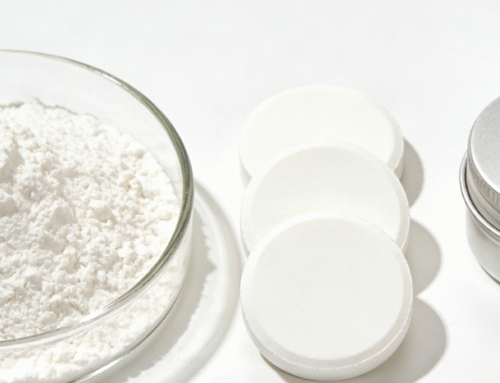
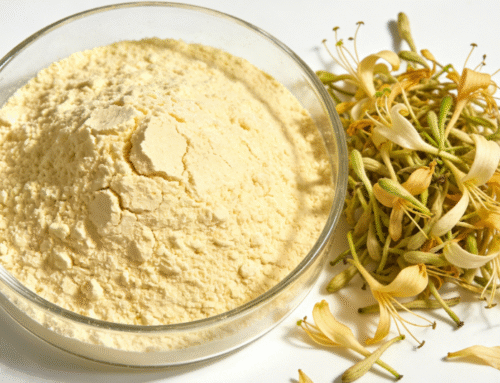
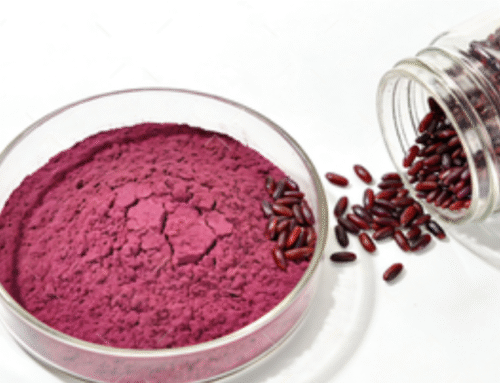
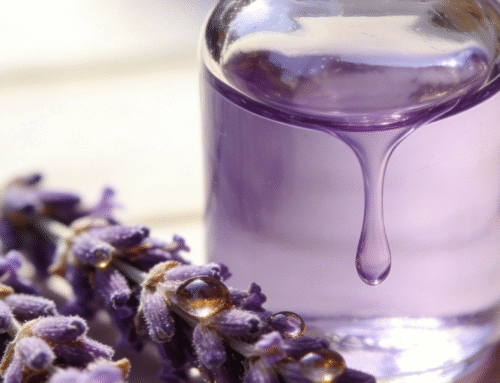
Leave A Comment